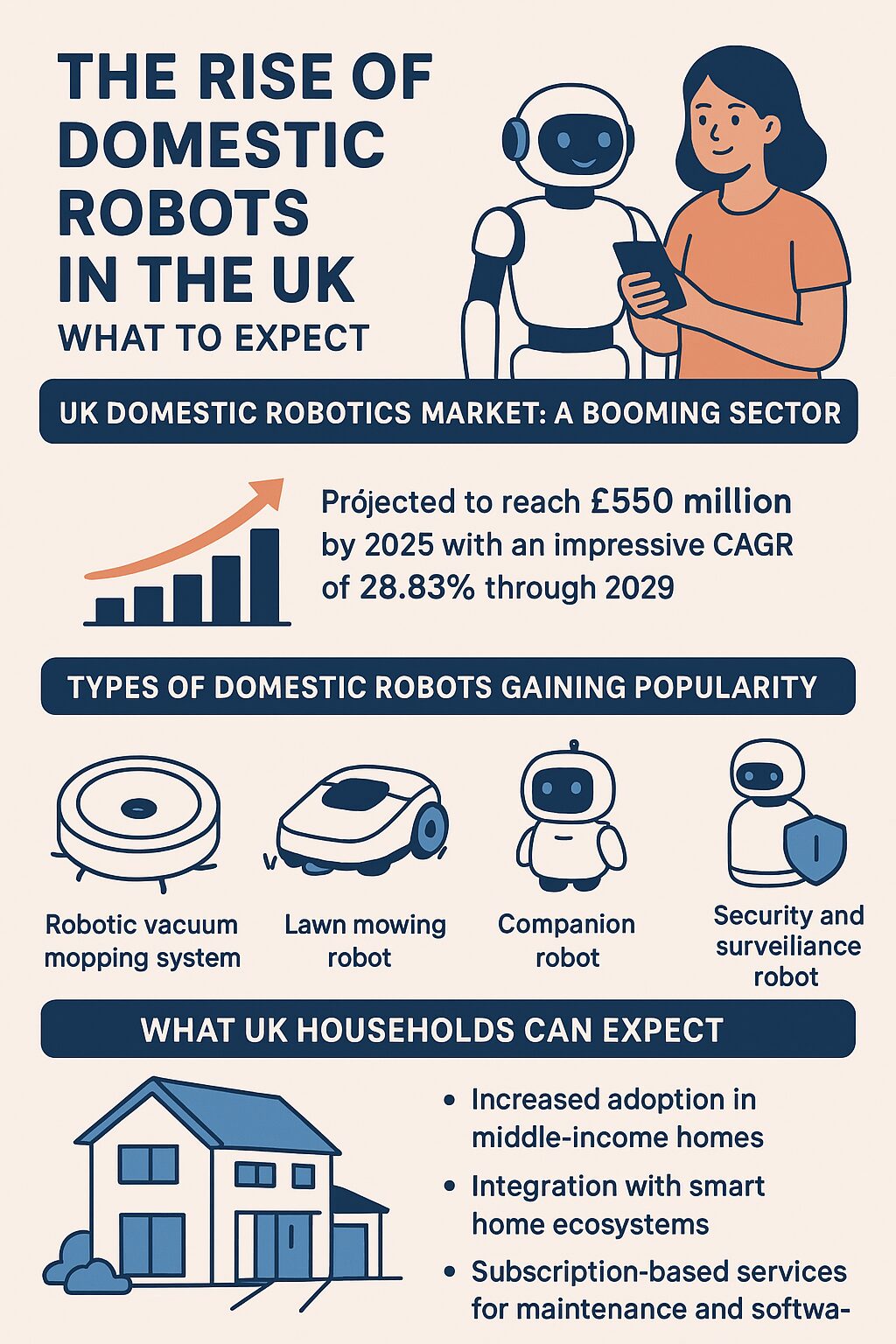The domestic service robotics market in the UK is projected to reach £550 million by 2025, with an impressive compound annual growth rate (CAGR) of 28.83% through 2029. By then, the market is expected to exceed £1.5 billion, reflecting a growing appetite for automation in everyday life.
This growth is fueled by:
- Aging population seeking assistive care solutions
- Busy urban lifestyles demanding time-saving technologies
- Advancements in AI and IoT, enabling smarter, more autonomous devices
🤖 Types of Domestic Robots Gaining Popularity
UK households are embracing a wide range of robotic assistants, including:
- Robotic Vacuum and Mopping Systems: Brands like Roomba and Roborock dominate this segment, offering scheduled, app-controlled cleaning.
- Lawn Mowing Robots: Ideal for suburban homes, these devices autonomously maintain gardens with minimal human input.
- Companion Robots: Designed for elderly care and social interaction, these AI-driven bots offer reminders, conversation, and even emotional support.
- Security and Surveillance Robots: Equipped with cameras and motion sensors, they enhance home safety and integrate with smart home systems.
🔍 Government Strategy and Ethical Considerations
The UK government’s Smart Machines Strategy 2035 outlines a vision where intelligent systems integrate seamlessly into daily life. It emphasizes ethical AI deployment, data privacy, and human-centric design to ensure trust and safety.
Key policy goals include:
- Promoting responsible innovation
- Supporting AI literacy and public engagement
- Encouraging industry standards for safety and interoperability
🏡 What UK Households Can Expect
As domestic robots become more affordable and capable, expect:
- Increased adoption in middle-income homes
- Integration with smart home ecosystems (e.g., Alexa, Google Home)
- Subscription-based services for maintenance and software updates
- AI personalization, allowing robots to adapt to user preferences and routines
🔮 The Future: From Helpers to Household Members
Looking ahead, domestic robots will evolve from task-specific tools to multi-functional companions. With advances in natural language processing, machine learning, and sensor fusion, these robots will:
- Understand complex commands
- Learn from user behavior
- Collaborate with other smart devices
- Offer emotional and cognitive support
🚀 Final Thoughts
The rise of domestic robots in the UK marks a pivotal shift in how we define home life. As technology continues to advance, these machines will not only clean and secure our homes but also enrich our daily experiences. For consumers, businesses, and policymakers alike, the future of domestic robotics is both promising and transformative.

